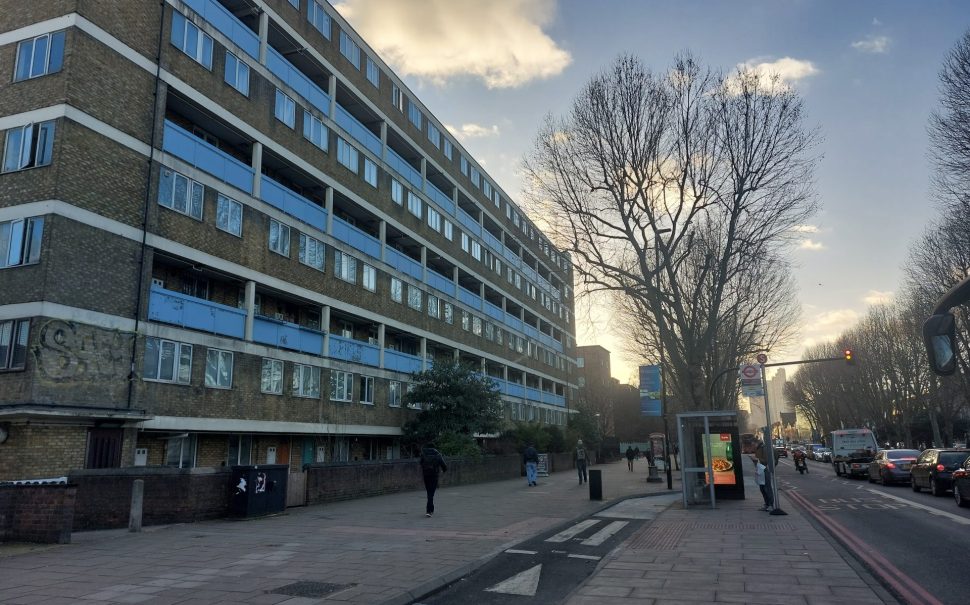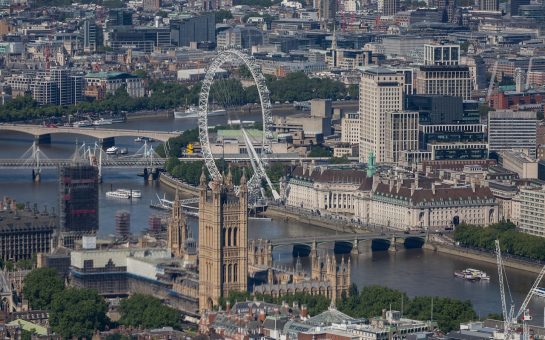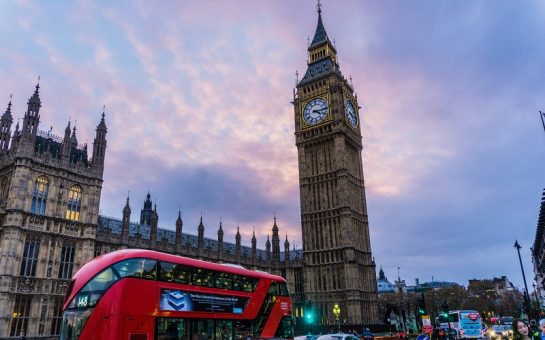The rate of affordable homes completed in London’s fastest growing borough, Tower Hamlets, has halved in recent years, The Department for Levelling Up, Housing and Communities (DLUHC) has revealed.
The worsening housing crisis is underpinned by 1812 affordable homes being built in 2011/12, compared to 808 homes in 2022/23.
The 2011 and 2021 Census figures show that Tower Hamlets has experienced the fastest rate of population growth of all London boroughs growing by 23% from 240,495 to 312,273, a 71,778 increase.
In the same time the number of affordable homes successfully added to Tower Hamlets increased by 12,255, an average of 942 homes per year.
This means that since 2011, in Tower Hamlets a new affordable home has been made available for every six additional people, and this is why demand for affordable housing far outstrips supply.
Angie Hooper, the new business director of L&Q, a leading housing association managing 5,664 homes in Tower Hamlets said: “It’s fair to say that the supply of affordable housing has dropped off in recent years.
“With all things being considered, it is becoming more difficult to provide affordable housing in this environment.”
Supplying affordable housing has been difficult for a while, as the 1812 affordable homes built in 2011/12 has failed to be surpassed since, with the closest competing year being 1676 homes completed in 2019/20.
Tower Hamlets is however, still one of the best in the capital for building affordable homes.
These facts paired with the council’s confirmation that 70% of houses are rented, as well as significant numbers of overcrowding, mean the gap between demand and supply for affordable housing will continue widening with waiting lists times further increasing.
In 2022, a freedom of information request revealed that two-year waits for a home are now standard, with 91% of people on waiting lists in Tower Hamlets for more than two years.
Housing associations are trying their best but a situation where waiting lists are massively reduced is becoming increasingly difficult to see.
Hooper added: “The drop off in the supply of housing is as a consequence of rising interest rates, construction cost inflation and legislation changes.
“The building safety act has made it more expensive to build, and schemes more financially challenging from a viability perspective.”
A spokesperson for Notting Hill Genesis, a housing association who currently manage 3,000 homes in Tower Hamlets, said: “We are aiming to play our part in ensuring that we address the capital’s housing shortage.
“The economic backdrop has been persistently challenging and we face the same challenges as other housing associations in London.
“There is also the challenge of balancing investment in improving our existing portfolio with the ambition to build more homes.”
The most recent years provide bleak viewing of London’s fastest growing borough as in the past three years, the average number of affordable homes completed has been roughly 700, a 60% drop off from the 2010/11 figure of 1812.
The number of projects started each year has remained stagnant too with the 2022/23 figure – 761 nearly identical to the 2015/16 figure – 708.
We will have to wait and see if the recent downturn in new affordable housing is due to the COVID-19 crisis, however given a lack of improvement in 2022/23, it’s unlikely.
In fact, the GLA scheme, a scheme aimed at increasing provision of affordable housing in London shows that affordable homes completed under the scheme almost halved from 808 in 2022/23 to 411 in 2023/24 in Tower Hamlets.
The 50% drop off in a year, could be justified by the council’s assessment of Tower Hamlets being the most densely populated area in England (15,695 residents per square kilometre).
There is simply not enough space for the increasing number of residents in Tower Hamlets.
Hooper has stated that the housing association can look at commercial buildings no longer in use but with the (DLUHC) predicting Tower Hamlets to increase by a further 60,000 people to 372,000 by 2029, although progress can be achieved but meeting the demand for affordable housing in effective time is a a lofty ambition.
Riverside, a housing association with more than 5000 homes in Tower Hamlets have highlighted some progress despite challenges of building affordable housing.
A Riverside spokesperson said: “Development of new housing is challenging in Tower Hamlets as it is one of the most densely populated local authorities in the country.
“Three of our projects in the area are currently progressing slower than anticipated due to competing investments with existing homes.
“However, we do have We currently have five regeneration projects on the Island at various stages, covering 870 existing homes and with the potential of delivering a further 2,000 plus more.”
The Notting Hill Genesis spokesperson added that they are trying their best with current residents.
They said: “We have targeted recruitment of local officers who speak Bengali, which has already improved our relationship with the community and ensured we are able to resolve any issues more quickly.”
Hooper added: “I would like to think we could get to a point where there isn’t a housing crisis.
“The goal collectively is to solve the housing crisis, and it would be great if temporary accommodation was no longer needed in the volumes it is now.”
London councils, a collective of local government in London, revealed that councils collectively spend £90 million a month on temporary accommodation, while one in 15 Londoners are classified as homeless.
DLUHC data shows that of the 112,000 in temporary accommodation in England, London accounts for almost 60% (63,000).
Riverside said: “The cost of temporary accommodation is not sustainable, and this investment would be better diverted into building new homes.”
The housing crisis has reached a point where housing associations such as Riverside have to offer extra support such as the ‘Helping Hand Fund’, which is available to customers in Tower Hamlets as those who are experiencing financial difficulty can apply for additional support from us through small grants.
To help alleviate the housing crisis Riverside have deemed it necessary to provide practical short-term support, such as help with paying bills, replacing household appliances or travel costs for job interviews.
Their spokesperson added: “We don’t stop at offering housing and will support customers in sustaining their tenancies through our dedicated housing sustainment team, alongside offering money advice, employment and affordable warmth services.
“In recent years we have also provided around £60,000 to help fund community projects and environmental initiatives in Tower Hamlets, including those which tackle poverty and make improvements to the neighbourhood.”
Tower Hamlets is the most income deprived borough in the population according to Trust for London, a group who fund research and organisations working at the frontline of social and economic justice.
With income deprivation referring to the lack of income and other resources, the issue of affordable housing in Tower Hamlets is further exacerbated.
Ultimately, given that Tower Hamlets are the largest growing, densest and most income deprived borough in London, with the rate of new affordable homes on the decline, waiting lists are set to increase and the housing crisis is set to worsen for the foreseeable future.





Join the discussion